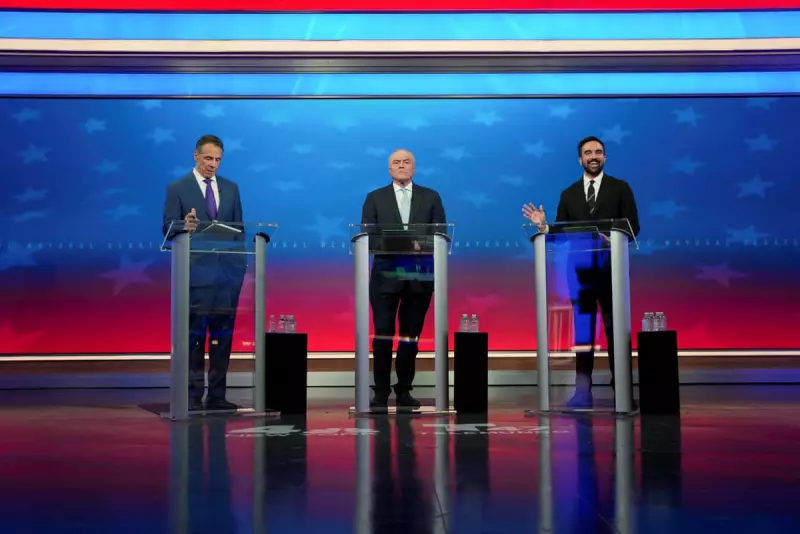
The first New York City mayoral debate between Democratic candidate Andrew Cuomo and Republican incumbent Curtis Sliwa erupted into heated exchanges on Wednesday night, with both candidates trading sharp personal attacks and presenting starkly different visions for America's largest city.
A Battle of Styles and Substance
From the opening moments, the debate revealed a dramatic contrast in leadership approaches. Cuomo, the former governor attempting a political comeback, positioned himself as the experienced statesman capable of managing complex crises. Meanwhile, Sliwa, the colourful founder of the Guardian Angels, leaned into his street-level credentials and direct action approach.
Crime Dominates the Discussion
Public safety emerged as the central battleground, with both candidates offering radically different solutions to New York's persistent crime concerns. Cuomo advocated for what he called "balanced policing" combined with social programmes, while Sliwa doubled down on his support for aggressive law enforcement tactics.
"You can't have a city where people don't feel safe walking the streets," Cuomo declared, pointing to his experience overseeing declining crime rates during his governorship.
Sliwa fired back: "New Yorkers don't want more studies or committees—they want action and they want results."
Personal Attacks Fly
The debate grew particularly personal when Sliwa challenged Cuomo's integrity, referencing the sexual harassment allegations that contributed to his resignation as governor. Cuomo countered by questioning Sliwa's credibility and management of city affairs.
At one tense moment, Cuomo snapped: "This isn't about television ratings or radio shows—this is about running the most complex city government in America."
Policy Divides Deepen
Beyond the personal sparring, significant policy differences emerged across multiple fronts:
- Homelessness: Cuomo proposed expanding mental health services and affordable housing, while Sliwa emphasised clearing encampments and enforcing quality-of-life laws
- Economic recovery: The candidates clashed over business regulations and support for small enterprises struggling post-pandemic
- Transportation: Differing approaches to subway safety and infrastructure investment highlighted competing urban visions
What Voters Are Saying
Political analysts noted the debate reflected the broader national struggle between moderate Democratic approaches and conservative law-and-order messaging. With New York City facing multiple overlapping challenges, the election outcome could signal broader political trends affecting urban centres nationwide.
The intense exchange sets the stage for what promises to be a closely contested election, with both campaigns already preparing for the next scheduled debate in the coming weeks.





